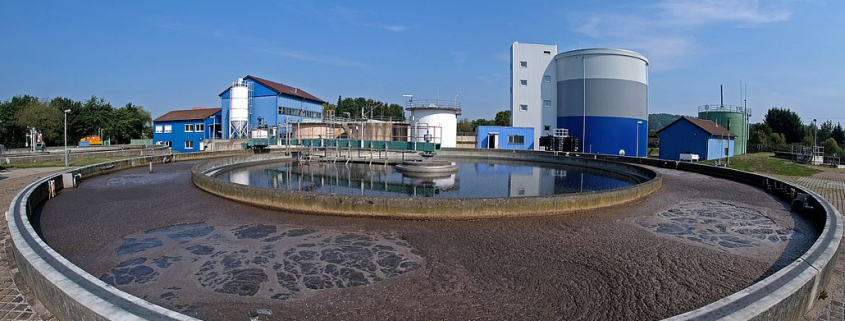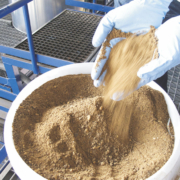New Initiative to Foster Recovery of Phosphorus in Germany
In June, the company EasyMining Germany informed that – together with several other companies – it has created an initiative “Sauberer Phosphor 2029” (Clean Phosphorus).
The initiative will work to champion and advocate for phosphorus recovery and recycling processes in Germany that are environmentally friendly and sustainable, the firm, which is owned by the Swedish environmental company Ragn-Sells, announced in a press release. Each member of the initiative would address either wastewater management or phosphorus recovery. “Nutrient recycling is essential but can only be considered if conducted in a sustainable way. This is why this initiative is so important,” Christian Kabbe, CEO EasyMining Germany, was cited. Three things would matter when it comes to phosphorus recycling: quality, volume and reliability. As reported, the initiative relates directly to the German Sewage Sludge Ordinance, which was amended to begin requiring the recycling of phosphorus from sewage sludge ash in 2029.
Members of “Sauberer Phosphor 2029” are Gelsenwasser, MSE Mobile Schlammentwässerungs, PTC-Parforce-Technology Cooperation, Parforce Engineering and Consulting, KSR Klärschlammrecycling Bitterfeld-Wolfen, Phosphorgewinnung Schkopau and Ragn-Sells. In creating the initiative, the companies collaborated on a position paper, which “outlines seven agreed-upon qualities for clean phosphorus recovery”.
According to the information, phosphorus recycling must be a process that
- can guarantee that the defined targets and intentions for phosphorus recovery in accordance with the Sewage Sludge Ordinance can be achieved;
- does not cause any additional accumulation of pollutants on fields, arable land, or cultivated areas;
- separates phosphorus recovery into product and residual material fractions in a manner that assures quality regardless of the composition and pollutant load of the starting material;
- fosters independence from the import of phosphorus through reliance on domestic sources;
- produces clean and universally applicable, marketable phosphorus products that are needed and further processed in the established structures of the phosphorus processing industry;
- removes the pollutant substances from the material cycle;
- enables separate recovery of as many valuable materials as possible from the ashes.
“These key positions will be featured prominently in public advocacy efforts by the initiative and its members,” EasyMining, a part of the Swedish Ragn-Sells group, underlined.
Phosphorus is a vital ingredient in fertilizers and an essential additive for livestock feed. Its primary source is phosphate rock, a non-renewable resource that is mainly mined outside of Germany. “But new processes to recover phosphorus from incinerated sewage sludge are being developed and implemented into large-scale operations,” the company informed. “Sewage sludge ash is not only a potential circular source of phosphorus but a domestic one as well.”
(Published in GLOBAL RECYCLING Magazine 3/2022, Page 17, Photo: Hubert Jelinek / TU Clausthal)





